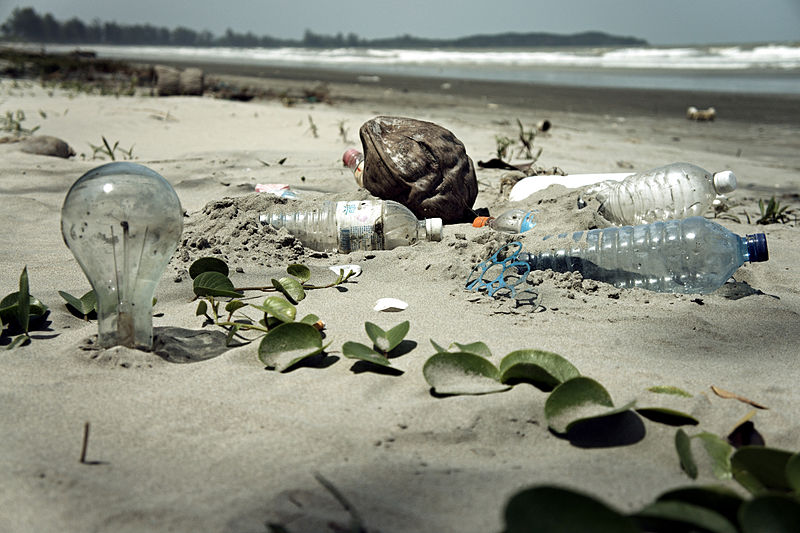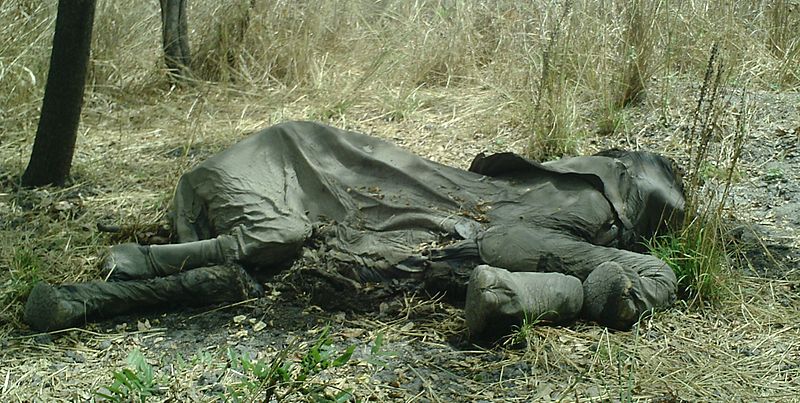Toxic Tourism
The word “tourist” has gained such a negative connotation that many phrases and alternatives are now widely used, such as world traveler and nomad. I like the word visitor because it implies that both the visited and the visitor have already established an understanding of mutual exchange. The phrase “we have visitors” is often used in familiar family and friend circles, which is the type of experience that many tourists now seek.
Sustainable tourism not only encompasses socially and environmentally responsible hotels and restaurants, but it also implies a socially and environmentally responsible approach to tourism. Toxic tourism is just the opposite—tourism that harms the visited community and puts the local society on a regressive path away from sustainability.

Waste pollution and trash disposal at the garbage beach of Malaysia. Wikimedia Commons: epSos.de
Toxic tourism includes overusing precious resources (e.g., energy, water), disrespecting local customs (e.g., dress, manners), purchasing goods that are not made locally (e.g., big discount retail store), and participating in activities that harm the well being of current and future generations in the location visited. There are three areas of toxic tourism that I will highlight: child sex tourism, poaching, and the superiority complex.
Child Sex Tourism
An estimated two million children worldwide are victims of the multi-billion dollar sex tourism industry. Child sex tourism (CST) is the forced prostitution of under-aged youth (in most cases 12 years old and younger), specifically catered for tourists. Having sex with a child becomes the attraction, and as a consequence of this form of toxic tourism, children suffer from disease, ostracism, drug addiction, pregnancy, and a vicious cycle of poverty and low self-esteem.
There are over 1,000 signatories to The Code of Conduct for the Protection of Children from Sexual Exploitation in Travel and Tourism, an initiative with a mission to provide awareness, tools and support to the tourism industry in order to prevent the sexual exploitation of children. Remember this for your next trip: child sex exploitation is never okay, no matter what country you visit.
Poaching

Location of poached elephant carcass in Bouba Ndjida National Park in Cameroon. Wikimedia Commons: U.S. Fish and Wildlife Service Headquarters
Poaching is the illegal hunting, killing, capturing, and abuse of animals. Poaching is done for trophy (poaching tourism) or for profit (an appetite to eat endangered species and use the animals in medicine). In 2012, almost two rhinos were killed by poachers per day in South Africa. Only about 10,000 free-roaming African lions remain, down from 50,000 a decade ago. An estimated 12,000 African elephants are killed each year for their ivory. Poaching creates endangered species (that disrupts the very ecosystem that we as humans depend on for survival), drastically decreases the livelihood of those that depend on wildlife tourism, funds terrorism activities in some instances, and promotes animal abuse.
Unless you are a trafficker involved in the extensive $10 billion wildlife crime industry, the risk of you supporting the toxic tourism of poaching will likely be at the dinner table, at the jewelry store (in the case of ivory) or at the wildlife camp. Toxic tourists will request to eat endangered species in exotic locations or to illegally hunt endangered animals on a safari. You can best support sustainable wildlife tourism by participating in responsible conservation efforts where you can enjoy wildlife without harm. Conservation tourism makes it financially viable for people to not succumb to lucrative poaching practices. To learn more and to take concrete action, you can join the World Wildlife Fund’s Stop Wildlife Crime campaign.
Superiority Complex

This is helpful! Australian volunteer Kari Martin worked as an Ecotourism Development Officer with the Samoa Tourism Authority. Here she is pictured helping with the clean up after Cyclone Evan. Samoa 2012. Wikimedia Commons: Austraining International
While responsible visitors will actively avoid activities such as poaching and child sex tourism, they may be less aware of the subtle social dynamics of visiting economically poor parts of the world. In some locations, being seen as a foreigner may automatically denote extreme wealth in the eyes of the local population. In Madagascar, a country of extraordinarily unique natural wonders and beauty, many people view foreigners in this manner. “Vaza,” is the ubiquitous word for “foreigner” in Malagasy. Although well-intentioned, some foreign visitors will give candy and pens to children they meet in villages. Not only are the gifts misdirected (it would be more useful to provide books for the actual Malagasy curriculum, for example), but they also promote a superiority-inferiority dynamic that is, well, toxic. It would be far better for the visitors to participate in volunteer tourism where they can provide services, such as training teachers, that will have a lasting positive impact on the local community. When done well, volunteer tourism shows that the tourists can also learn from the local population, such as a new language and a new perspective; it’s an exchange as opposed to a one-way relationship.
What to do?
Planning travel ahead of time is one of the best ways to avoid inadvertent toxic tourism. Whether you are traveling to a city close by or to a far away land, do your homework beforehand and seek the help of sustainable travel planning services if short on time.
Travel well by traveling sustainably!
Note: Learn more about reponsible tourism with the free ebook, Adventures Less Ordinary: How to Travel and Do Good.
Sustainable Travel Expert Marilyn Waite holds a master’s degree in Engineering for Sustainable Development from Cambridge University. She is founder of SustainableVisit.com, giving conscientious travelers tools they need to support the economic and ecological viability of people and places worldwide. Learn more at www.SustainableVisit.com


















